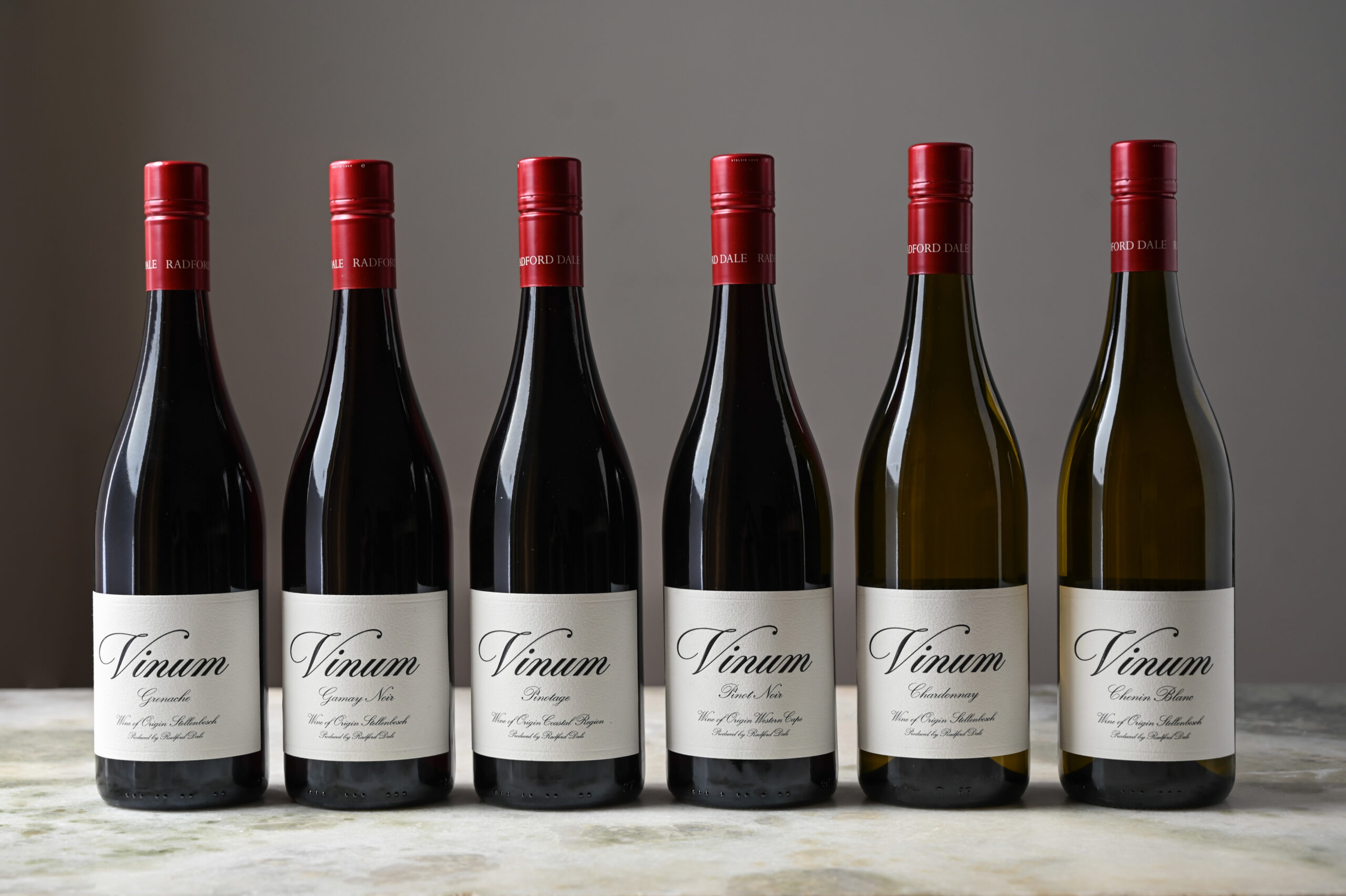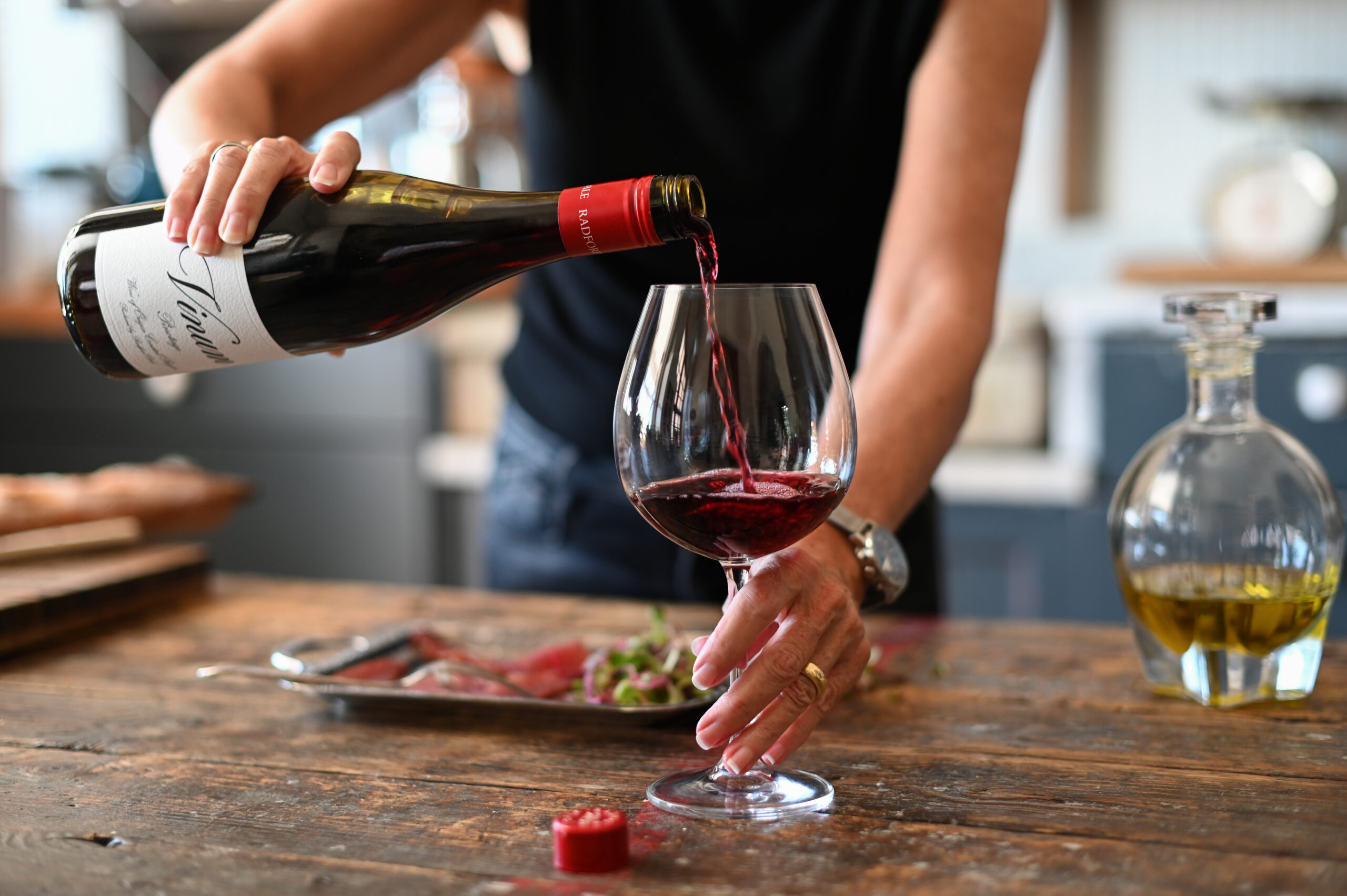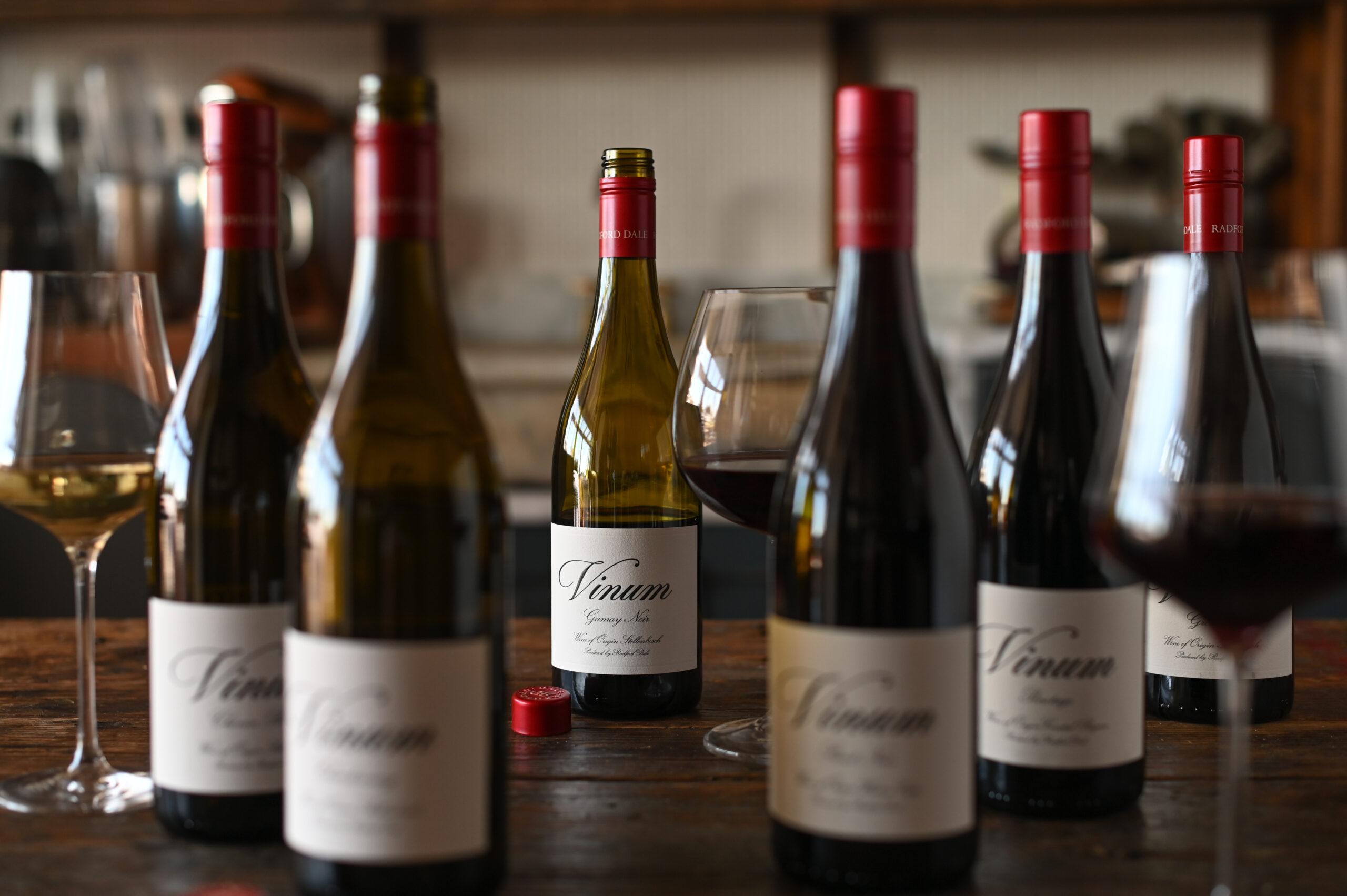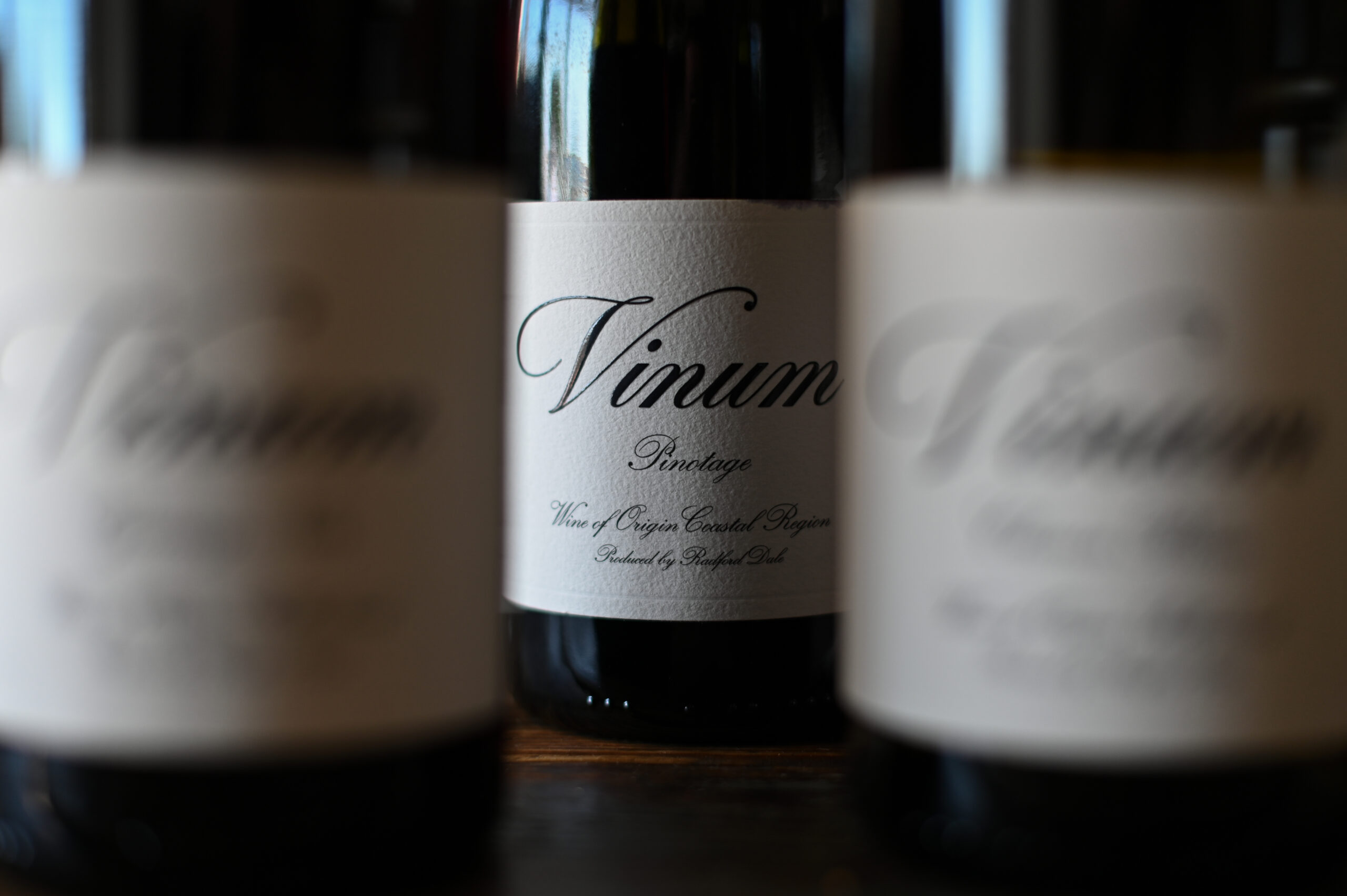
Ripe for the times.
Value, authenticity and elegance; Radford Dale Vinum’s new lease of life
South Africa, Stellenbosch, 31 March 2022; Radford Dale’s Vinum began with two of the Cape’s most celebrated grapes, Chenin and Pinotage. Building on this legacy the range has now been expanded to incorporate four other wines, a chardonnay, gamay, grenache noir and a pinot noir.
“The new Radford Dale Vinum range retains its historic focus on the Cape’s heritage grapes,” commented Jacques de Klerk, head of winemaking and viticulture. “To this we are adding a selection of other varieties that combine a focus on what we believe the Cape has the potential to excel in as well as grapes we have a particular affinity for.
“The three things we believe are the basis of fine wine expression: variety, terroir, and vintage and we aim to showcase this with the new Vinum wines too.”
In terms of positioning De Klerk says they have taken those principles and added earlier drinking pleasure as he says he wants the wines to be both intriguing as well as rewarding.

Helping tell that story are the new labels: sporting elegant script on textured, white paper, the new-look is tactile and understated. While the feel is traditional, the design is delivered in a wholly modern aesthetic, incorporating the best of both worlds, much like the wine itself with the Old World sensibility in a New World format.
Aiming to be equally at home on bistro tables and wine shop shelves, the focus for Vinum is also to offer a major value proposition, as many of the details are similar to that of the premium Terroir range from Radford Dale. Similar or identical vineyard sites as well as viticultural practices and winemaking techniques are being employed. The delivery however is less cerebral and more about drinking pleasure.
“Hugely enjoyable to drink, the Vinum range is at the intersection of individualism, value and quality,” says founder of Radford Dale, Alex Dale. “The range continues our quest for producing, honest, authentic wines that that feel natural rather than contrived.”
Also on this point De Klerk emphasises: “When someone opens a bottle of Vinum we want them to have no doubt about who made it. Our wines are distinct and are characterised by their restraint and elegance. When it comes to our red wines, the quality of the tannin is always more important than the quantity, the wines are never huge, but quite pared back and toned down. We don’t make blockbusters.”

De Klerk says that even though they work with moderate alcohols they are still able to achieve good fruit weight due to site selection. “We’re in a fortunate position that we can source from a lot of different vineyards. Old vines tend to give you intensity without bulk, a built-in concentration. You’re not forced to pick super ripe. We also work with younger vineyards and here we focus on extracting the right kind of phenolics and flavour compounds in a gentle way, generally incorporating whole berries.
At its core the Vinum range respects the inherent character and fruit purity of the single cultivars, and the hands-off winemaking allows this to shine through.
Celebrating the grape
The Vinum Chenin Blanc 2021 in its 23rd vintage is produced from old, dryland bushvines planted in granitic soils on the foothills of Stellenbosch’s Helderberg. De Klerk says he doesn’t depend on new oak for texture and gravitas on the palate. “If you take away oak, then you need to replace it with something. So some skin contact was used to do that. I’m fascinated by the effect of the salinity it brings.”
The chenin was spontaneously fermented and matured on its lees in a combination of foudre and old oak barrels of varying sizes with a small percentage of new oak. In combination these steps have resulted in the preservation of freshness, but also development of considerable fruit and aromatic intricacy with a mineral undertone.
“These factors combine to produce a wonderfully fresh and vivacious expression of what is to us, the Cape’s greatest grape.”
With strong influence from Alex Dale’s upbringing in Burgundy, the making of Vinum Chardonnay 2021 is also adapted to the mineral geology and temperate maritime climate of the two ocean-facing sites used to make this wine. On the foothills of Polkadraai Hills, a 22-year-old vineyard is picked earlier for fresh citrus zing while the Helderberg vineyards, at 11-years of age, are picked a bit later for texture and weight on the palate.
“They’re the exact same vineyards we use for the Radford Dale Terroir Chardonnay,” shares De Klerk, underscoring the intrinsic value of the wines.
Likewise is the case with the Vinum Gamay Noir 2021, which makes use of the same site as its more premium Radford Dale Terroir selection counterpart does. Extremely rare in South Africa, there are just 10 hectares of gamay planted. The grapes for this wine come from two vineyards, both southeast facing and on the Polkadraai Hills. One, planted in 1999 in granitic soils, is picked later for an expression of full-fruited exuberance, while the younger parcel is Radford Dale’s maiden harvest from their own vines planted in 2017 in ‘pure, crunchy granite soils’.

A true labour of love, to plant this vineyard De Klerk shares that they first had to rehabilitate the country’s mother blocks. “They were so neglected and dilapidated that we spent a year and a half, just improving the vigour, so that they could create enough plant material to establish our own.”
From a single Helderberg vineyard rooted in rocky koffieklip and decomposed granite, the grapes for the Vinum Grenache 2021 were handpicked at dawn in a bid to capture freshness and acidity while retaining elegance in the flavour expression.
“With gentle extraction it is possible to make an easier drinking grenache without having to wait years for it to soften,” explains De Klerk. We allow the character of the variety to shine through.”
The Vinum Pinot Noir 2021 is blended from two sites. One is from a north-facing Botrivier block made up of famed Burgundian clone 115 planted in koffieklip soils. “As soon as I saw the site I I knew it was going to make a great pinot,” says De Klerk. The other component comes from a Stellenbosch site planted on Clovelly soils.
“With pinot we’ve come a long way in understanding each little aspect of every slope.” He carries this focus over into the winemaking too. The berries were co-fermented using natural ferments. Vinified using the ‘hoist system’, which enables them to use gravity to lift the berries into the tanks for 100 per cent whole berry fermentation. The berries were gently basket pressed for pure and fine tannins. The wine was then matured in a combination of 228L and 300L barrels of Burgundian origin,of varying ages.
The final wine, one of the originals, is the Vinum Pinotage 2021. The pinotage for this comes from a special site in the northern part of Stellenbosch, which is rich with layers of decomposed granite that bring freshness and purity to the resulting wine.
“Pinotage is incredibly generous in the cellar. It quite easily gives up its colour as well as its flavour and aroma. There’s so much that it wants to give that there’s really no reason to be heavy-handed with it. Less is more.”
Refreshing, distinct and offering rewarding drinkability, the new Vinum wines all represent remarkable value and a degree of individuality uncommon at this level.
Radford Dale’s Vinum range will be available to purchase online via https://www.radforddale.com/collections/vinum and other select retailers from 4 April 2022.
For Press and media assistance contact Ian Hamilton Manley via ian@publicity.co.za or call +27 (0) 82 826 0456.
ENDS/